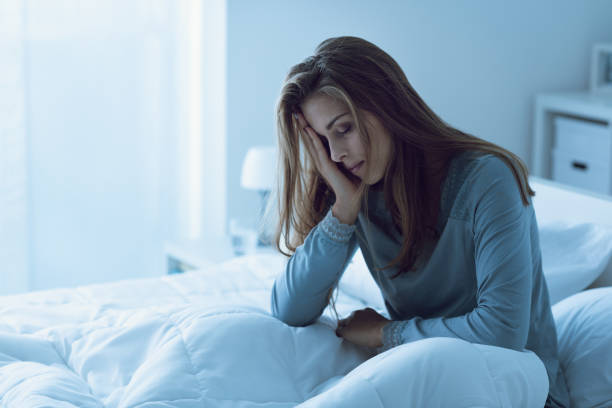Sleep Disorders: Types, Symptoms, Causes, and Their Treatments
Summary:
-
Sleep disorders are conditions which disrupt or affect a person`s ability to sleep on a regular basis.
-
Some common symptoms of sleep disorders include: Difficulty falling or staying asleep (insomnia), Excessive daytime sleepiness, Loud snoring, Frequent waking during the night. Etc
-
Lifestyle changes that may help improve sleep and overall healthy life: Stick to a regular sleep schedule, Exercise regularly, Manage stress

What Are Sleep Disorders?
Sleep disorders are conditions which disrupt or affect a person’s ability to sleep on a regular basis. There are contributing factors that cause sleep disorders; mostly, it can be caused by health problems or when people engage in too much stress, which can be in the form of busy and time-consuming schedules, or other external factors.
Although, sometimes, sleep disorders can be the result of an underlying health issue, and if such is the case, it is better to tackle the underlying health issue first to get rid of the sleep disorders.
In cases where it is not caused by an underlying health issue, lifestyle change can be a natural remedy.
Why is sleep important?

Sleep is a natural physiological state where a person’s voluntary muscles become inactive and they are in a state of relative unconsciousness.
This state is triggered by a group of hormones and can be defined in various ways, such as depth of sleep (light or deep), EEG characteristics (delta waves, synchronization), physiological characteristics (REM, NREM), or even anatomical level (pontine, mesencephalic, rhombencephalic, rolandic, etc.).
1. Strengthening your emotional processing
Sleep has a significant impact on our emotional well-being, as it influences our propensity to behave in a certain way. More also, it can also reduce the chance of anxiety and depression.
2. Improving memory function
Getting enough sleep helps improve focus, creativity, and decision-making skills.
Sleep is good for memory functions such as cognitive consolidation, learning, and problem-solving. When we don’t get enough sleep, the brain is likely to perform low.
3. Safety
It is always recommended to satisfy the desire of the body to rest and rejuvenate. When we don’t have adequate sleep, it makes it difficult for us to think straight and clearly, even responding to situations will be slow, which can be harmful to us, especially while operating machinery or driving a car.
4. Physical health
We can get our blood pressure regulated when we have adequate sleep. Blood sugar levels, and immune function. Chronic sleep deprivation has been linked to an increased risk of cardiovascular disease, obesity, diabetes, and other chronic health conditions.
4 different types of sleep disorders?
1. Sleep apnea
The temporal interruption of breathing during sleep, is often a serious medical condition that causes the body not to take in enough oxygen. People living with sleep apnea snore heavily and may wake up gasping for breath.
There are two types of sleep apnea: Obstructive sleep apnea and central sleep apnea
Obstructive sleep apnea (OSA)
Obstructive sleep apnea occurs when air cannot flow into or out of the person’s nose or mouth because airway space is obstructed. This kind of sleep apnea is more than central sleep apnea
Central sleep apnea
This occurs when the brain misdirects the signals that the respiratory muscles need to begin breathing. Obstructive sleep apnea is more frequent than central sleep apnea. Observation, patient history, and polysomnography are used to make a diagnosis.
2. Parasomnias
Parasomnias are sleep disorders in which a strange or scary things happen that disturb sleep. Sleep talking, groaning, nightmares, bedwetting, sleep talking, bedwetting are example of parasomnias
3. Narcolepsy
This neurological condition results in erratic occurrences of daytime drowsiness and excessive daytime sleepiness. That is, a condition where a person is prone to falling asleep at any time without any control nascent narcolepsy.
Moreover, it may result in loss of muscular function, sleep paralysis, and hallucinations. A lack of the neurotransmitter hypocretin in the brain leads to narcolepsy.
4. Restless Leg Syndrome (RLS)
Restless Leg Syndrome is a painful condition in the legs, usually at night when not active that can lead to interrupted sleep and fatigue restore.
It causes an uncomfortable sensation in the leg. RLS is often accompanied by certain health conditions like Parkinson disease and attention deficit hyperactivity disorder (ADHD), although the precise reason isn’t usually recognized.
What are the symptoms of sleep disorders?
Sleep disorders can manifest in many different ways, and the symptoms can vary depending on the specific disorder. Some common symptoms of sleep disorders include:
-
Difficulty falling or staying asleep (insomnia)
-
Excessive daytime sleepiness
-
Loud snoring
-
Frequent waking during the night
-
Gasping or choking during sleep
-
Restless leg syndrome (an irresistible urge to move the legs)
-
Difficulty breathing while sleeping (sleep apnea)
-
Vivid or disturbing dreams
-
Abnormal sleep behaviors, such as sleepwalking or sleep talking
-
Feeling exhausted despite getting adequate sleep
-
Irregular sleep-wake cycle
-
Difficulty in concentrating or remembering things.
What are the causes of sleep disorders?
Sleep disorders can result from a wide variety of illnesses, diseases, and disorders. An underlying health issue frequently causes sleep disorders to arise. Some of the common causes of sleep disorders include:
1. Chronic pain
Chronic pain is a condition that can cause ongoing discomfort and affect daily activities.
It is possible to have pain when engaged in strenuous activity, but when it comes naturally due to other health conditions like arthritis, persistent headaches, continuous lower back pain, endometriosis, and irritable bowel syndrome (IBS) it will lead to sleep disorders.
2. Lifestyle habits
Certain lifestyle habits, such as irregular sleep patterns, caffeine and alcohol consumption, and irregular exercise habits can also lead to sleep disorders.
3. Allergies and respiratory problems
Allergies and respiratory problems such as asthma or COPD are health conditions as it oppose to lifestyle habits, it can cause congestion, coughing, and difficulty breathing, leading to sleep disorders.
These conditions may also lead to other conditions such as sinusitis or acid reflux, which can further cause sleep disorders.
4. Age
Sleep patterns and needs can change as we age, thereby leading to sleep disorders in older adults.
What are sleep disorders treatments?
The treatment for sleep disorders depends on the underlying cause. There are two approaches to treating sleep disorders, which include:
Medical treatments
Medications such as sleeping pills, melatonin supplements, allergy or cold medication, and medications for any underlying health issues.
Lifestyle changes
Lifestyle changes can be an effective treatment for some types of sleep disorders. Here are some examples of lifestyle changes that may help improve sleep and overall healthy life:
-
Stick to a regular sleep schedule
-
Exercise regularly
-
Manage stress
-
Avoid stimulating activities before bedtime: Activities such as watching TV, using electronic devices, or working on the computer can interfere with your ability to fall asleep
-
Maintaining a healthy weight
-
Limit caffeine and alcohol consumption
-
Create a relaxing sleep environment
-
Avoiding heavy meals before bedtime
-
Get a comfortable mattress and pillows
-
Don’t force yourself to sleep





